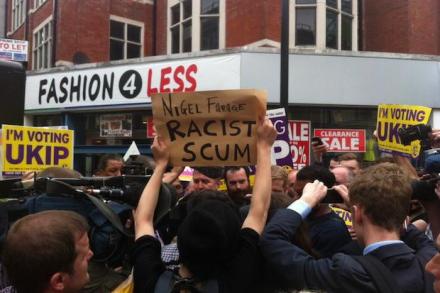The most shocking thing about young Ukip supporters: they’re normal
Close your eyes and imagine a young Ukip voter. Let me guess: mustard trousers, swivel eyes and foaming mouth, ranting furiously about the European Union, socialism, ‘lib-tards’ and so on. Now meet Dayle Taylor, a young Ukipper working at McDonald’s in Accrington. He’s no fruitloop, just a typical modern student who grills Big Macs to pay his way through university and feels that none of the major parties speak for him. What distinguishes him from your average British youth is a lack of apathy about politics. ‘I’m always encouraging Ukippers at McDonald’s,’ he says, ‘and I build up a rapport with the regulars who say they haven’t voted before but





















